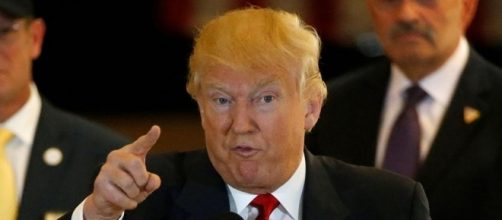The biggest surprise of the 2016 election has been the success of Republican nominee Donald Trump. As Trump went from joke candidate to potential president, his candidacy has highlighted a political divide in the country, regardless his controversial history.
Trump University trouble
When Trump announced his candidacy for president last summer, he referred to illegal immigrants as "rapists" and "murderers," prompting potential voters and many in the media to quickly sour on the billionaire real estate mogul. Since that time, Trump has gone on to make alleged racist and sexist comments on the campaign trail, while openly mocking a disabled reporter.
Despite the trouble, Trump was able to appeal to enough white conservatives and win the GOP nomination. While he's been able to weather the storm of controversy, there's one issue that he can't seem to shake, which was elaborated even further by a legal professor this week, pointed out by Raw Story on September 21.
Law professor: Trump can be impeached for fraud and racketeering before he even takes office https://t.co/pDoqvSzkCE pic.twitter.com/5LCCcjYuEm
— Raw Story (@RawStory) September 21, 2016
One of the lingering issues that is hovering above the Trump campaign is the upcoming fraud cause involving Trump University. Nearly 5,000 former students are taking legal action against the school for allegedly being scammed out of as much as $35,000 each.
Trump and his legal team have continued to deny any wrongdoing, but Professor Christopher L. Peterson of S.J. Quinney College of Law in Utah is looking at the bigger picture.
[University] Trump University: The Scandal That Won't Go Away - The New Yorker: The New YorkerTrump Universit... https://t.co/JShUSJLU1k
— Tweeting Univs (@universitwit) September 8, 2016
"It is illegal for businesses to use false statements to convince consumers to purchase their services," Peterson writes in the paper titled "Trump University and Presidential Impeachment." Peterson notes that the school took part in the use of "systemic pattern of fraudulent representations" with the goal of tricking students into investing into the university.
Impeachable offense
Accusing Trump of possible "fraud and racketeering," Peterson referred to the university's actions as "impeachable acts" if Trump is able to win the election this November. In conclusion, if Trump is found guilty of fraud, he could spend up to four years in prison, and up to 20 years behind bars if he is guilty on racketeering charges, according to New York State law. Though Trump's legal representatives attempted to have the case thrown out, they were not successful, as the trial starts three weeks after Election Day on November 28.
Judge denies request for five-week delay in Trump University trial https://t.co/SlWCPkwhD7
— 10News (@10News) September 15, 2016
Moving forward
While the former host of "The Apprentice" is dealing with legal issues, he first has to handle the task at hand.
According to the latest Real Clear Politics rolling average, Trump is trailing Hillary Clinton by just one point nationally. In important swing states, Trump has bounced back, pulling ahead in Florida and Ohio, though Clinton still has an advantage in Colorado, Pennsylvania, Virginia, and Wisconsin. The biggest obstacle for Trump is his historic hole with minority voters, most notably with African-Americans, women, and Hispanics, which most political pollsters believe will cause him defeat in just 49 days.

